Battleground (1949)
“I know why I ran. I was scared to death.”
|
Synopsis: |
|
Genres, Themes, Actors, and Directors:
Response to Peary’s Review: … and notes that he likes how director William “Wellman never lets us forget that the men are feeling the effects of the cold and deep snow.” However, he complains that “the guys are so wrapped up you can’t tell them apart” (not true). I’m more in agreement with a review by DVD Savant, who argues that “Battleground is the best of the generic ‘GIs in the Mud’ genre of war film.” He writes:
Indeed, this sobering film shows us exactly how miserable it was for these men, who would — just for instance — spend hours digging fox holes only to be told the next minute they were moving on. The screenplay hones in on specific (sometimes humorous) stories to ground us in the arc of the men’s experiences while demonstrating both their unity (they rely deeply on one another) and their individual challenges. Newcomer Thompson, for instance, can’t catch a break when he first arrives on the scene, trying in vain to secure a bunk for himself in their crowded quarters: He eventually realizes he needs to speak up and make himself known in order to be a visible part of the group. Fun-loving Johnson primarily wants to dally with a local French girl (Denise Darcel): … and, once that opportunity is lost, to cook the eggs he’s grabbed from her hens (a laughably futile task which gets postponed time and again): Meanwhile, Murphy eagerly awaits paperwork that will allow him to head home to care for his sick wife and young children: … and fearful Jaeckel insists on heading to the aid station, clearly as a way to avoid combat (though he’s not demonized): Indeed, the film does not shy away from the fact that these men were not only weary but often flat-out scared. In a particularly poignant scene, Johnson flees a battle only to find himself flanked by young Thompson, causing him to make a split-second decision that turns out to be heroic — but didn’t originate that way: Meanwhile, we see the authentic giddiness experienced by a Latino from Los Angeles (Montalban) who’s never seen snow before, and begins playing baseball with snowballs: … though the relentless snow is ultimately shown to be oppressive and fatal: Wellman and DP Paul Vogel frame each sequence for maximum interest, making this movie a visual treat even as we’re watching such a brutal storyline. It helps to know that assistance will ultimately be on its way: Notable Performances, Qualities, and Moments: Must See? Categories
Links: |
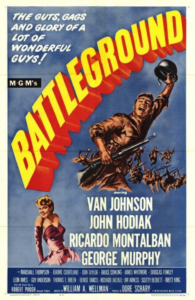
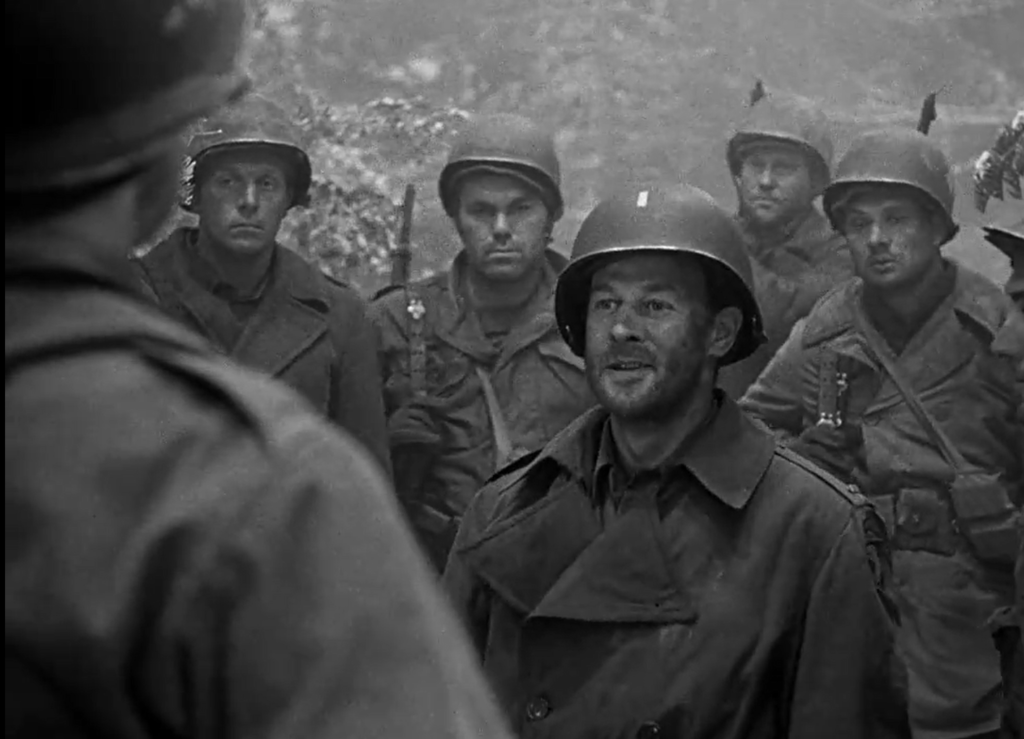
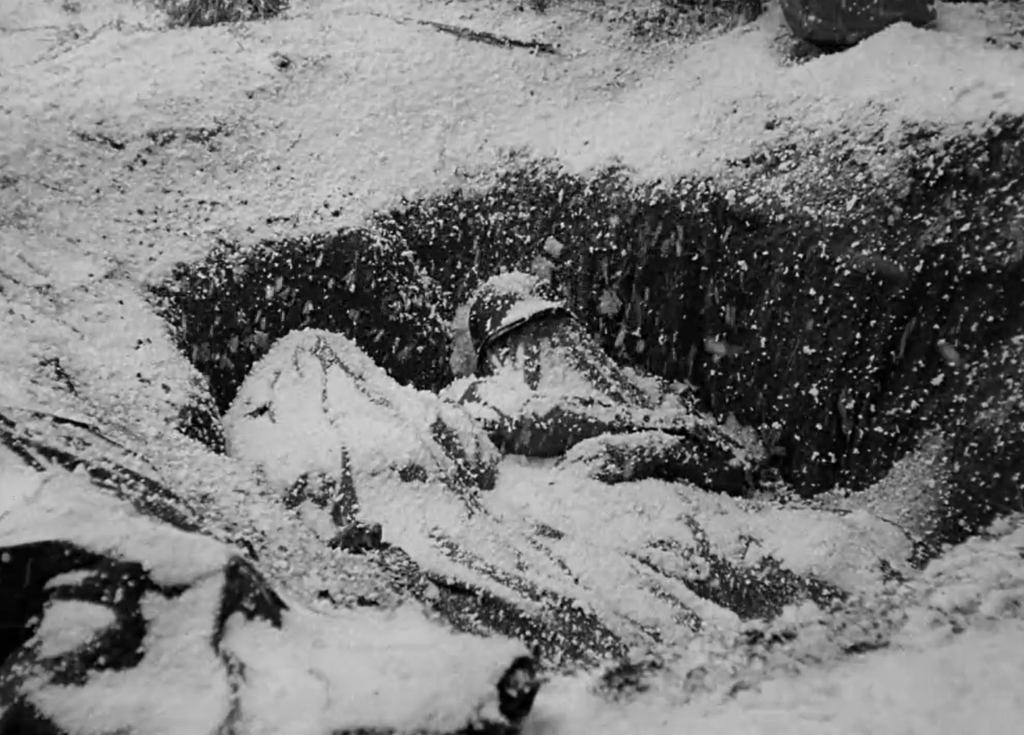

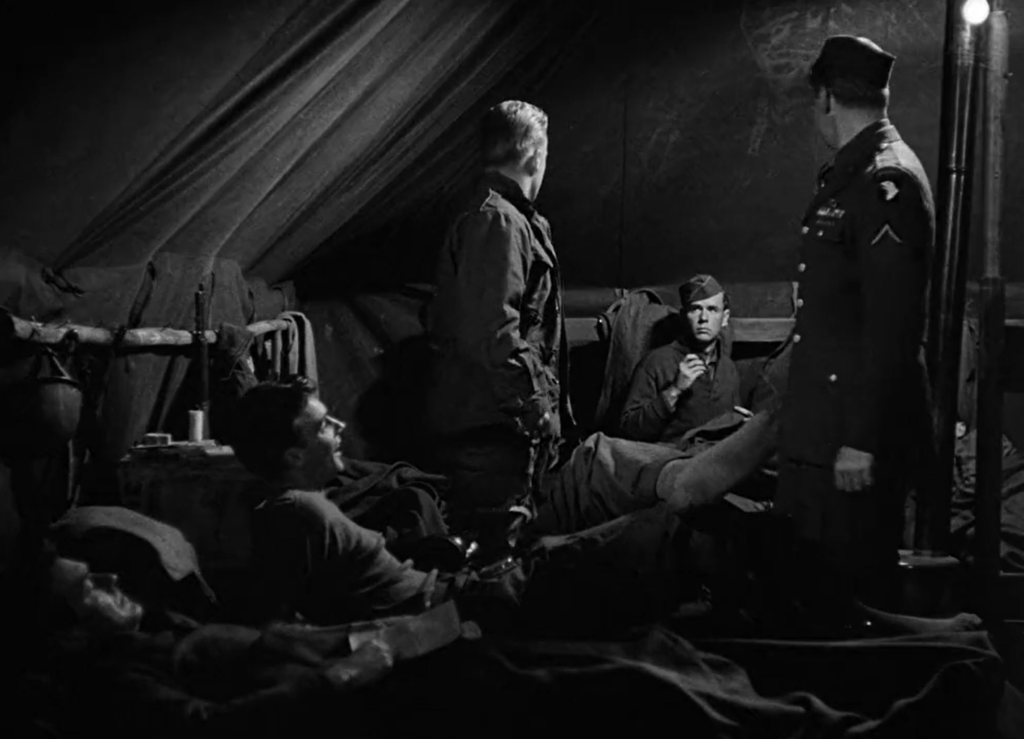
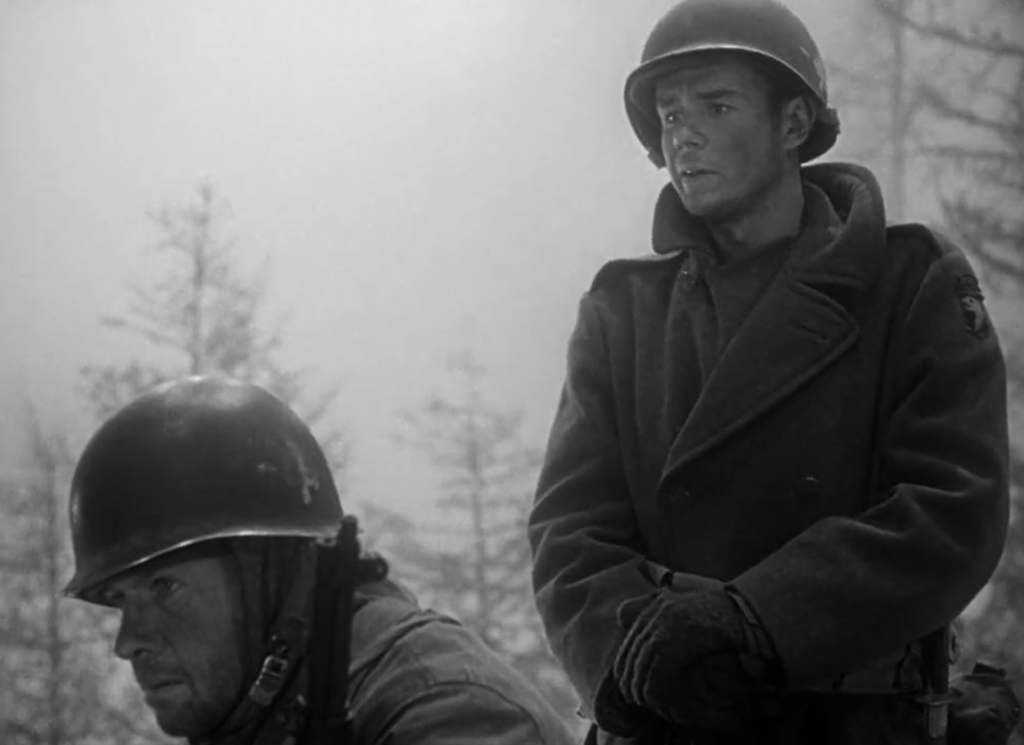
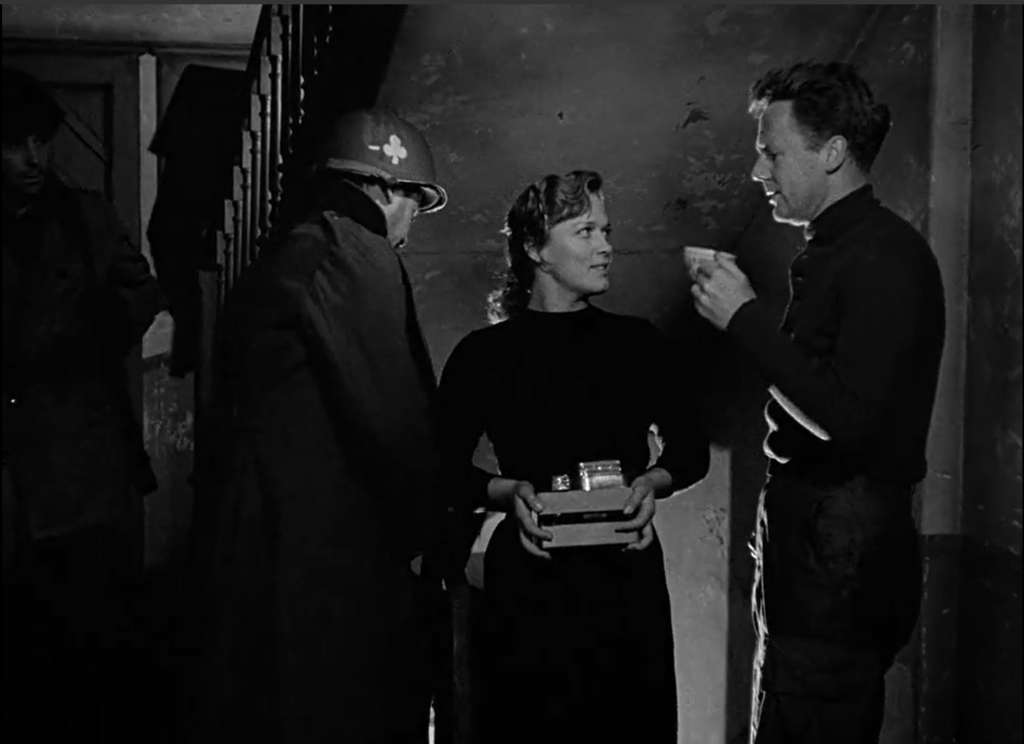

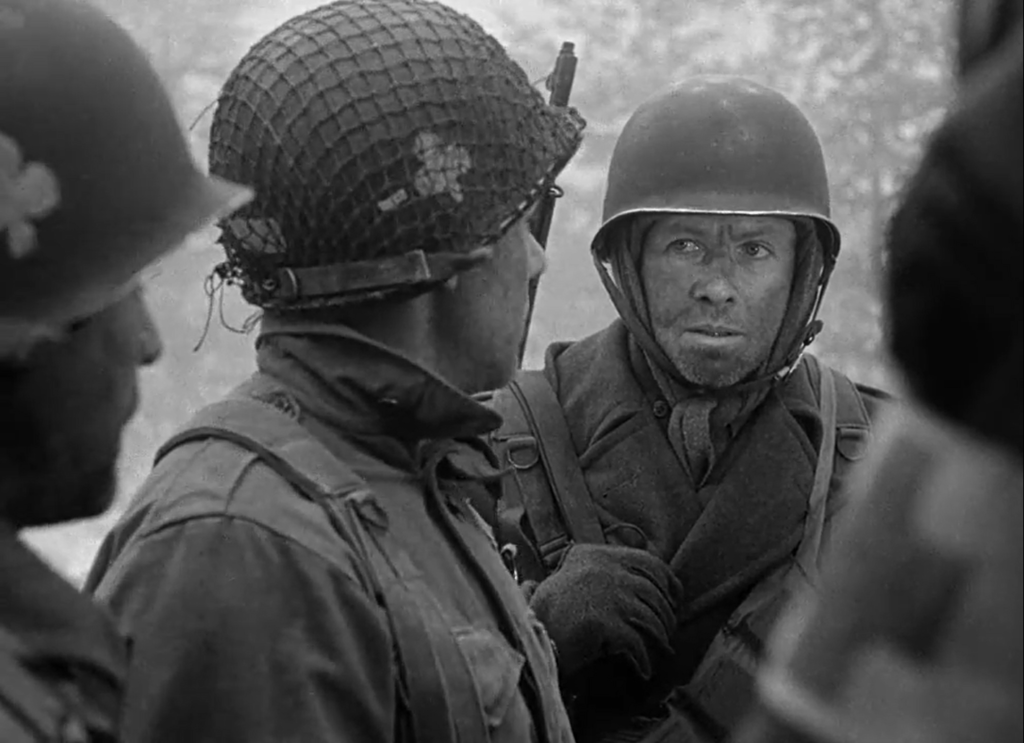
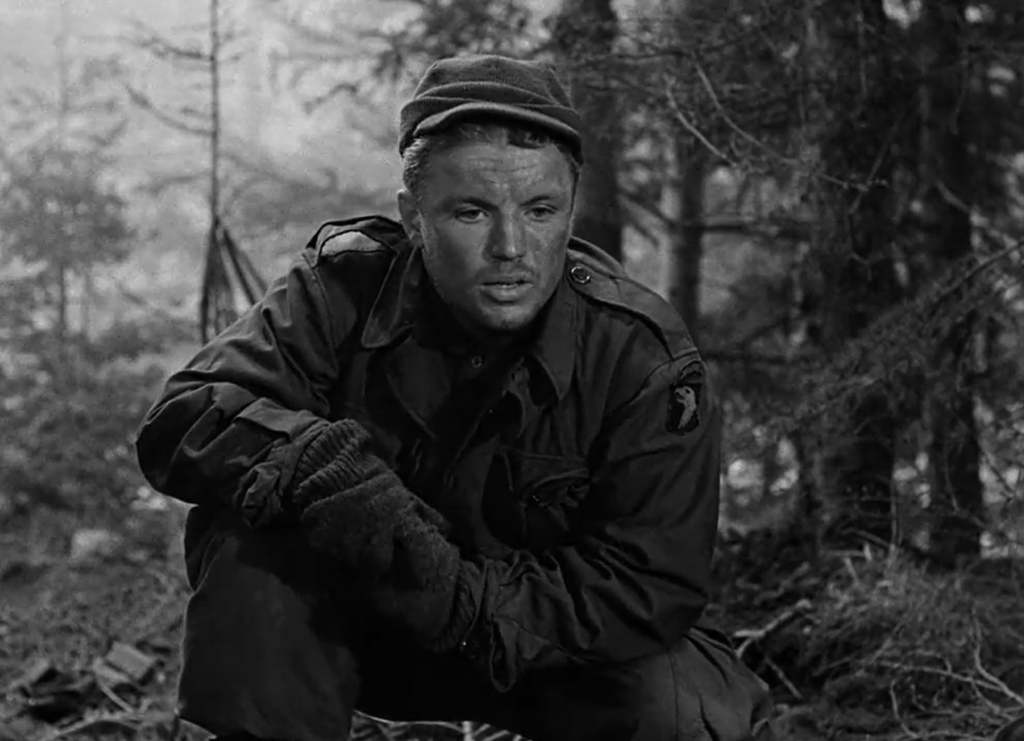
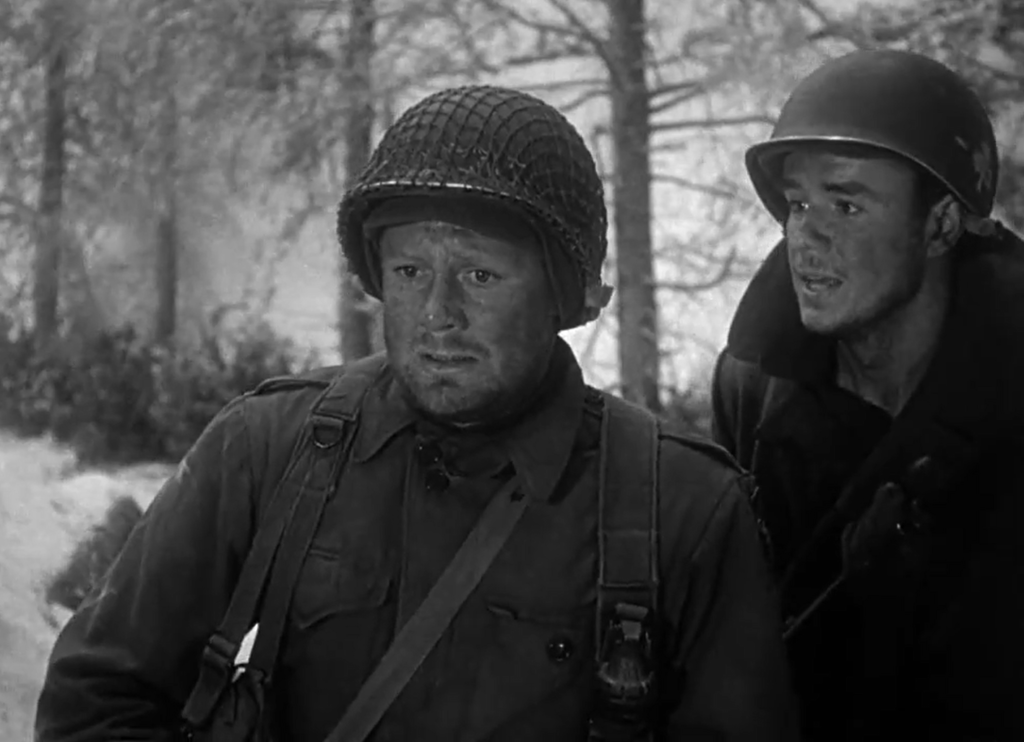
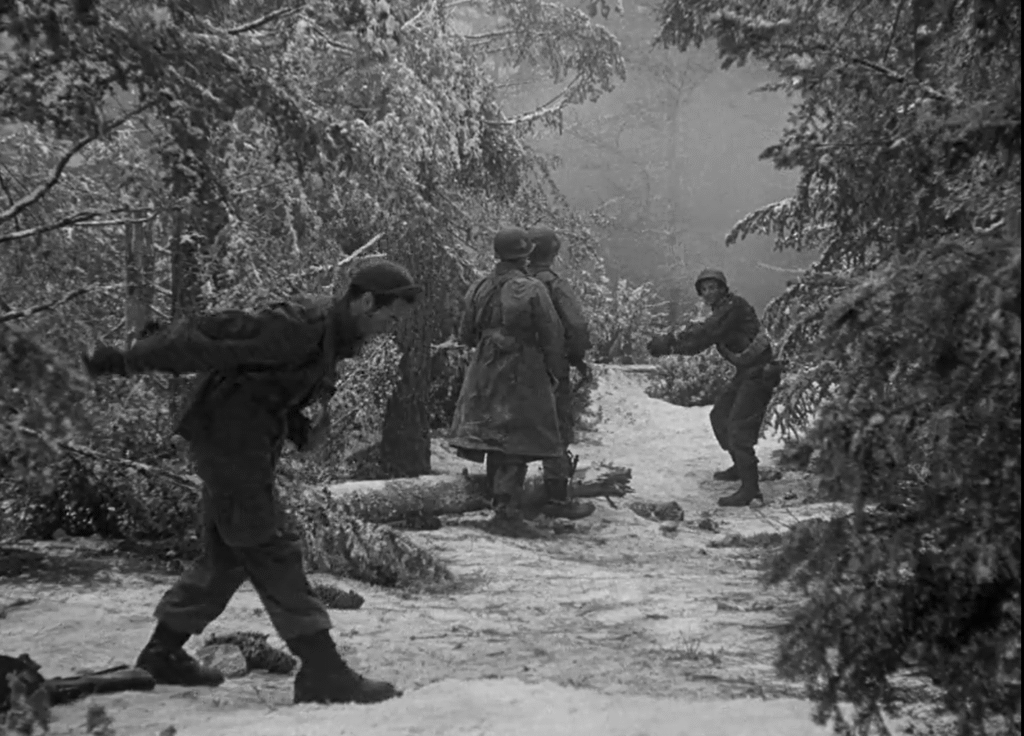
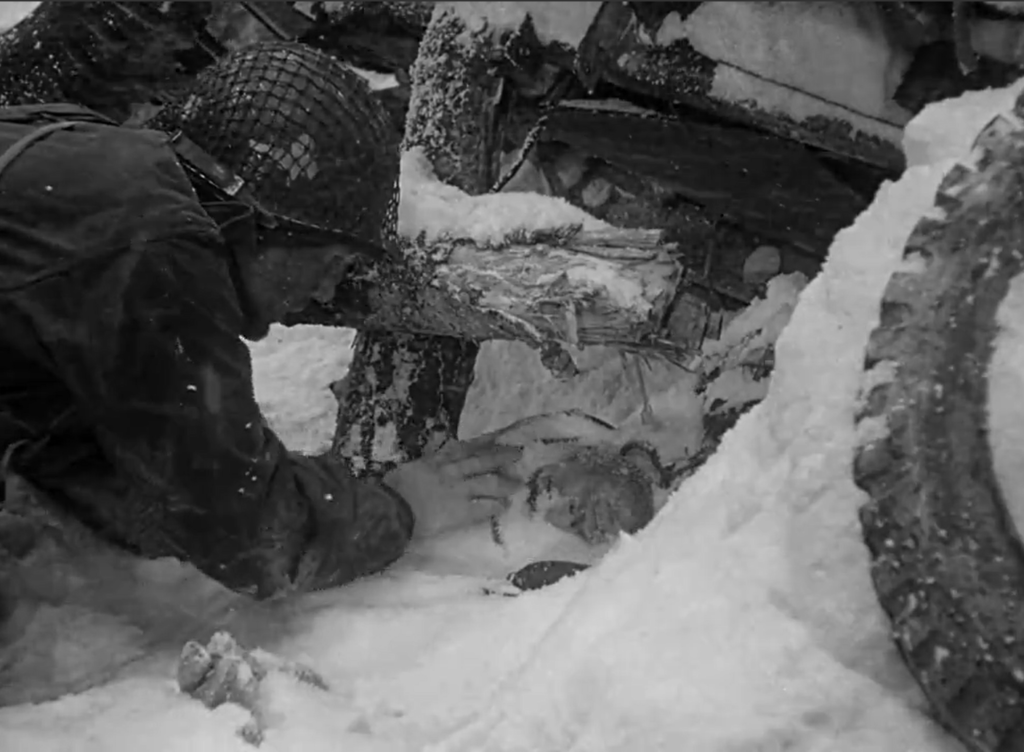
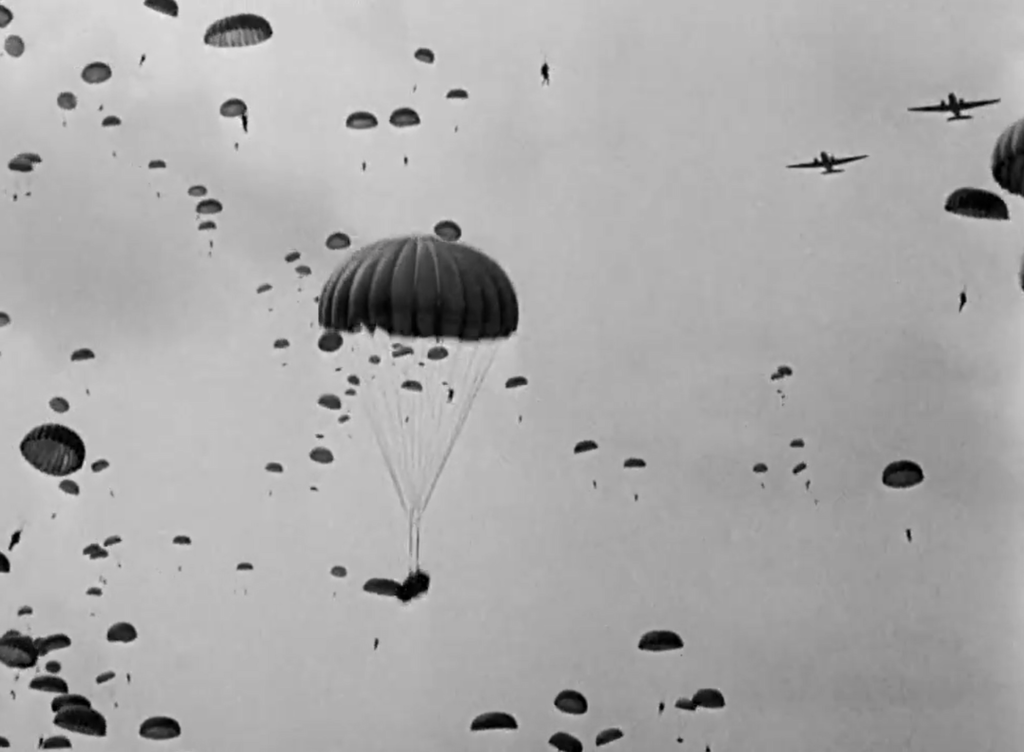
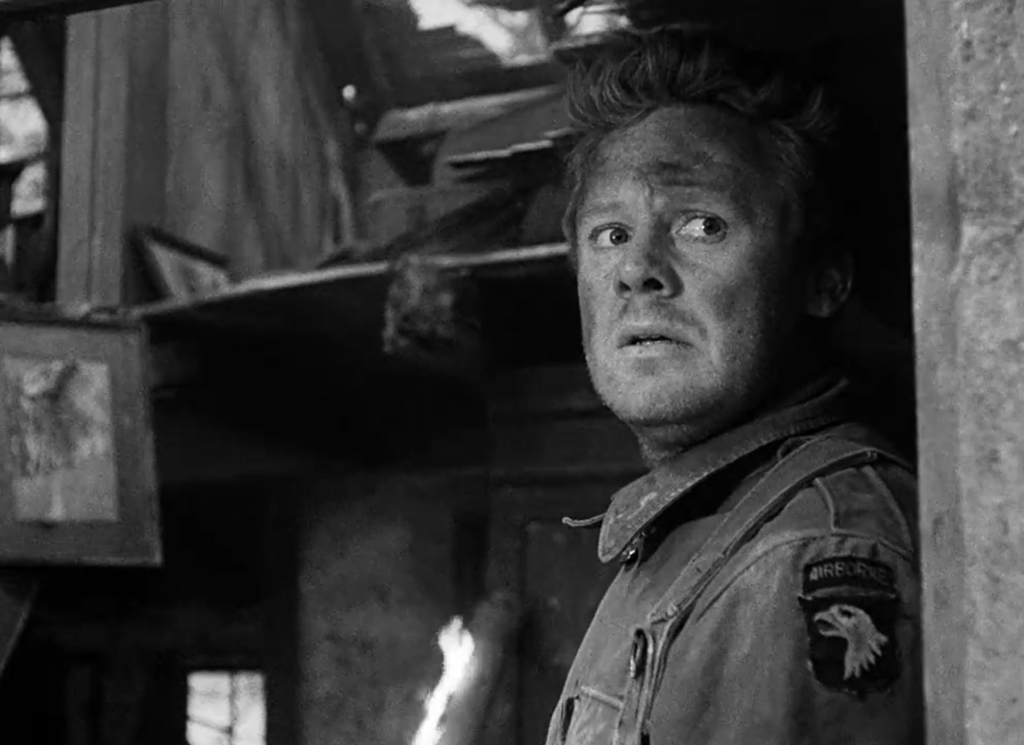
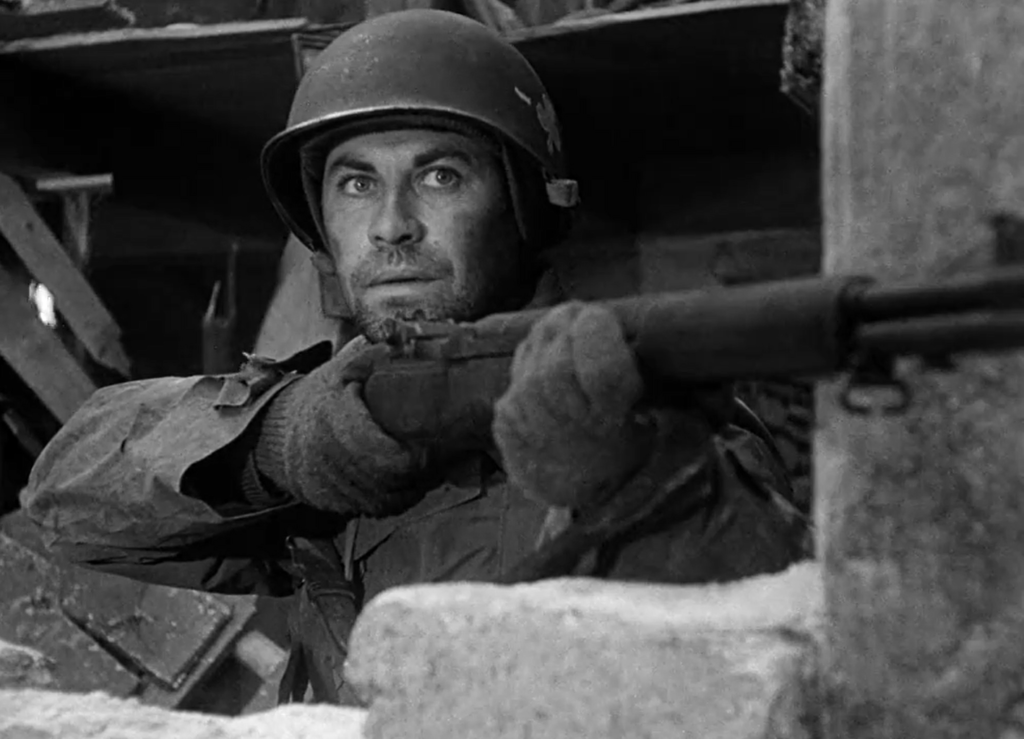
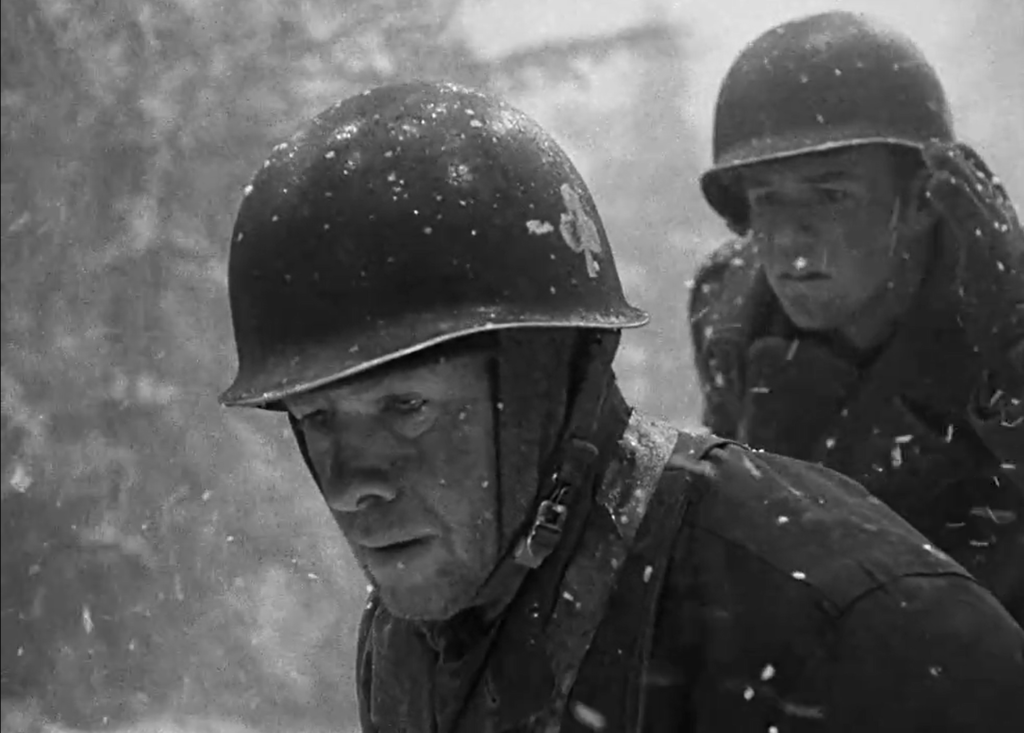
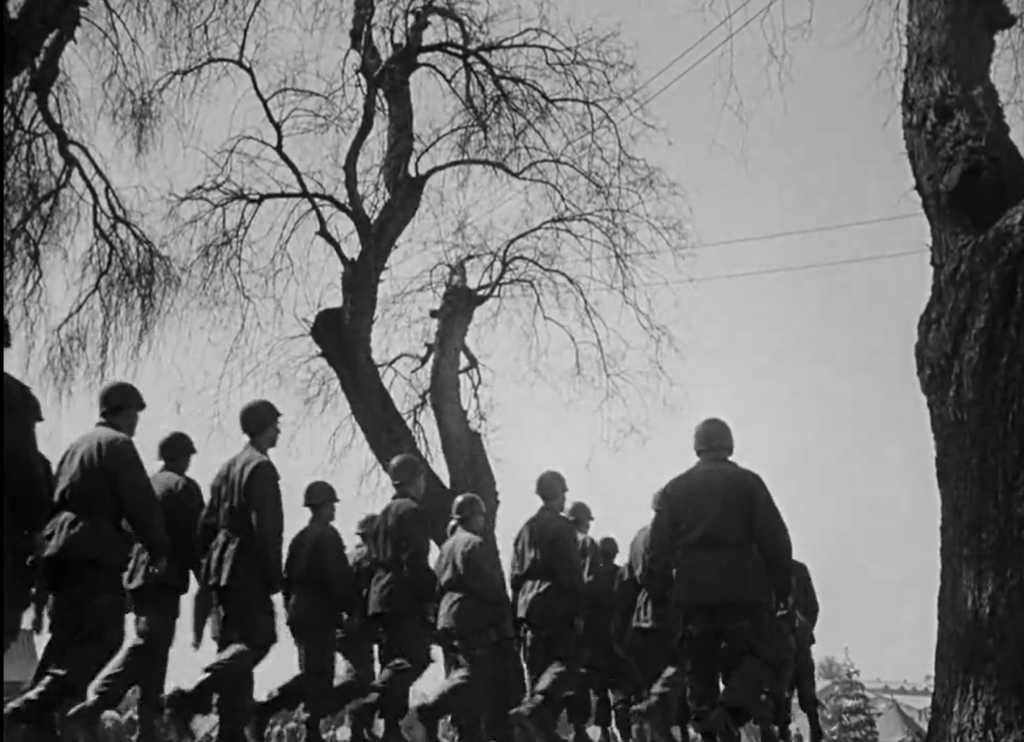
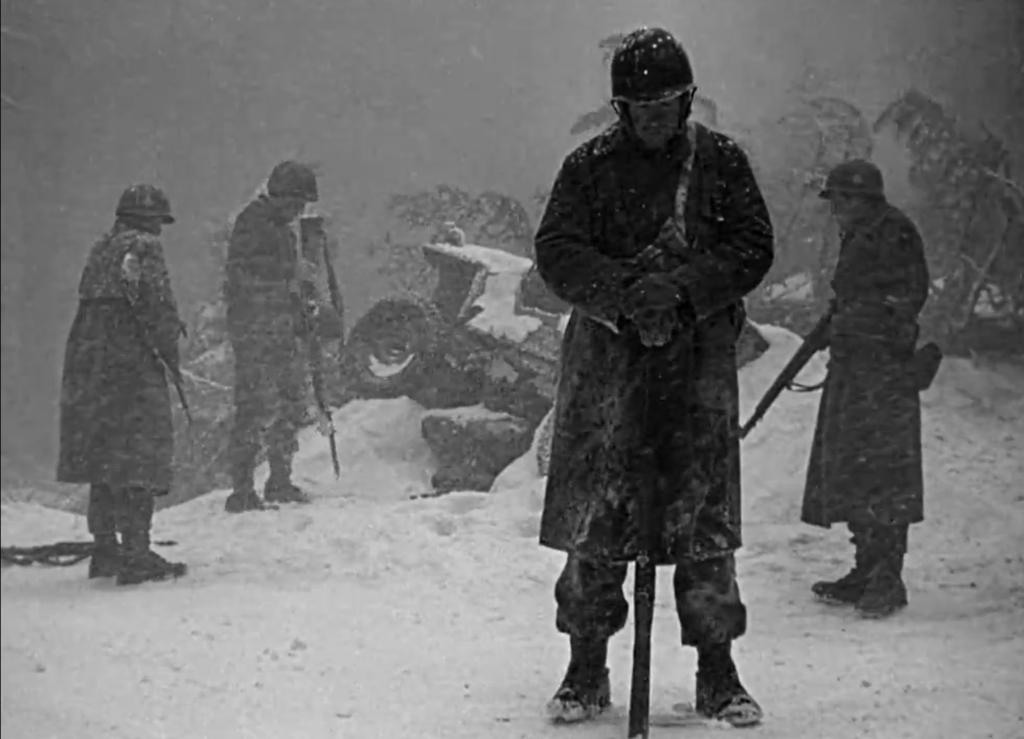
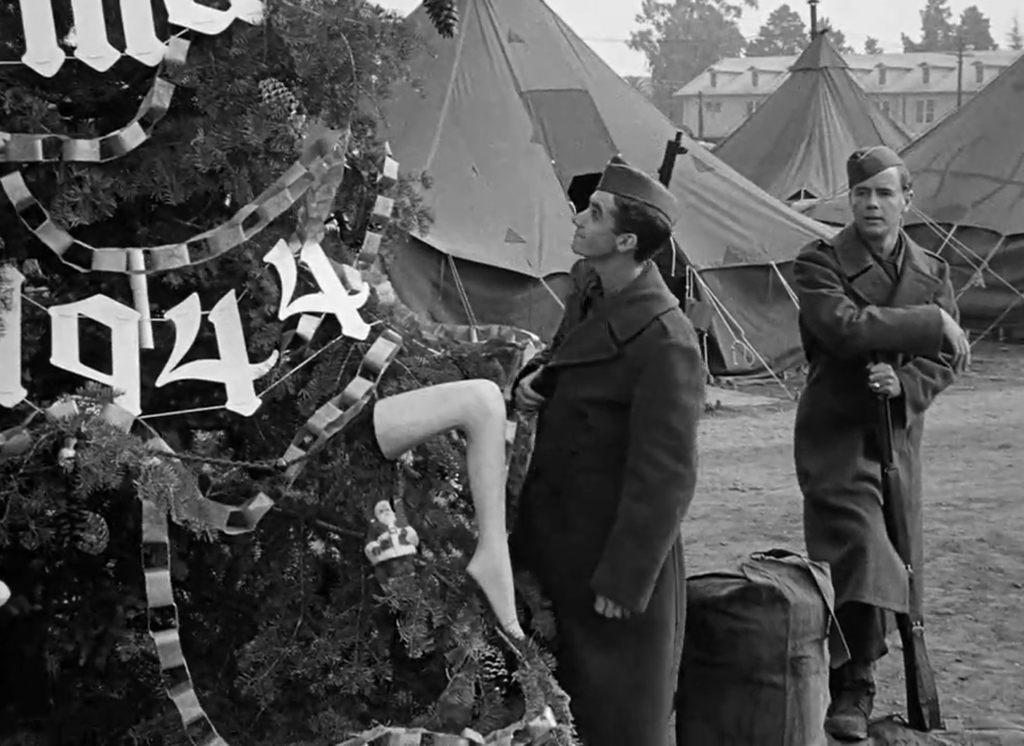
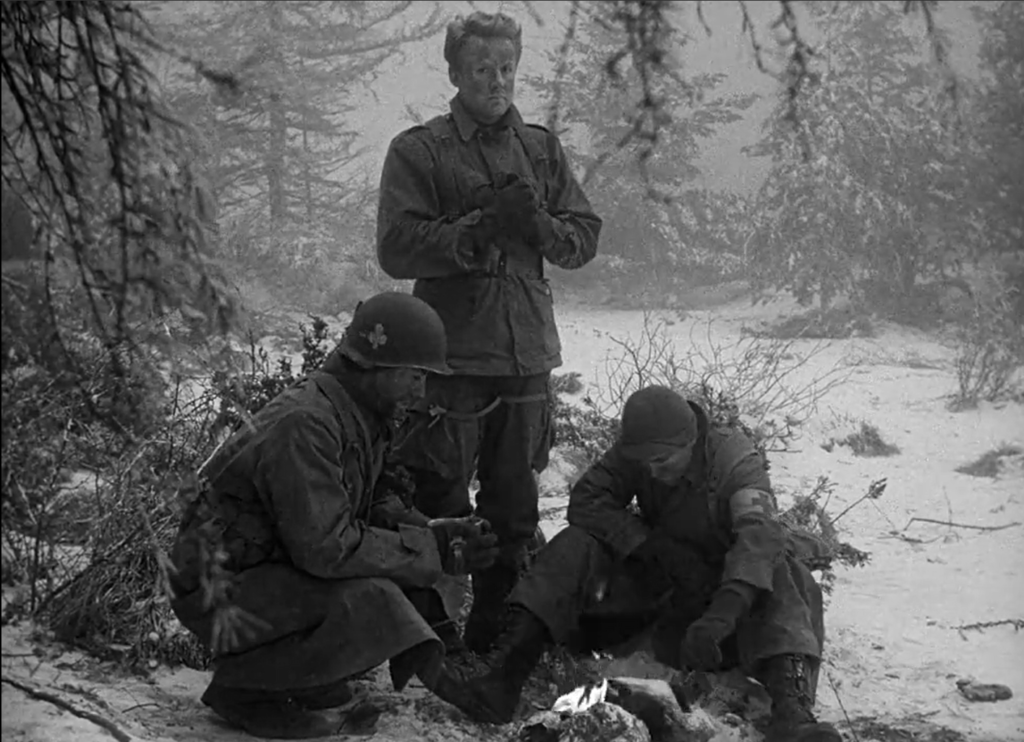
3 thoughts on “Battleground (1949)”
Must-see. A significant, effective war film. The second half is the tougher stuff (visually and emotionally), the details of which make it the better half of the film. I esp. like the speech (re: fascism) given by the chaplain (Leon Ames) near the last 20 minutes.
So glad to read your response to this one. Peary’s review had me absolutely befuddled, to be honest.
He does seem to make a few odd remarks. Saying the guys are “boring” or “so wrapped up you can’t tell them apart”… Huh?!